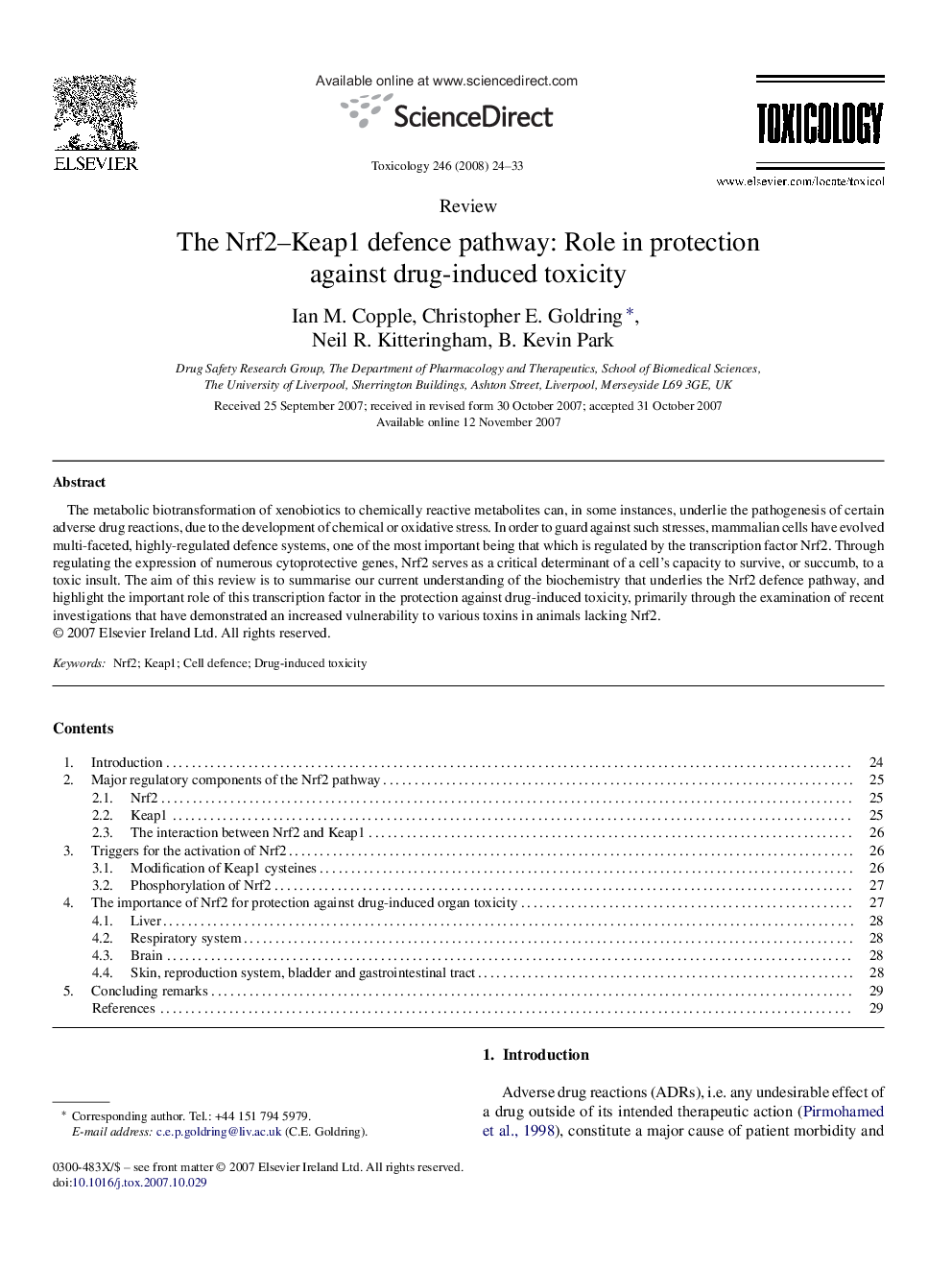| Article ID | Journal | Published Year | Pages | File Type |
|---|---|---|---|---|
| 2597475 | Toxicology | 2008 | 10 Pages |
The metabolic biotransformation of xenobiotics to chemically reactive metabolites can, in some instances, underlie the pathogenesis of certain adverse drug reactions, due to the development of chemical or oxidative stress. In order to guard against such stresses, mammalian cells have evolved multi-faceted, highly-regulated defence systems, one of the most important being that which is regulated by the transcription factor Nrf2. Through regulating the expression of numerous cytoprotective genes, Nrf2 serves as a critical determinant of a cell's capacity to survive, or succumb, to a toxic insult. The aim of this review is to summarise our current understanding of the biochemistry that underlies the Nrf2 defence pathway, and highlight the important role of this transcription factor in the protection against drug-induced toxicity, primarily through the examination of recent investigations that have demonstrated an increased vulnerability to various toxins in animals lacking Nrf2.
